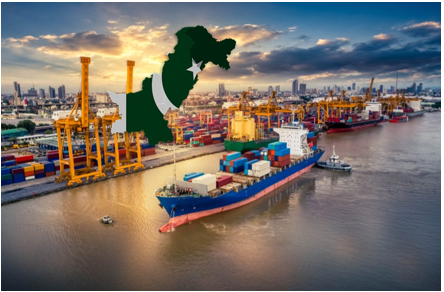INP-WealthPk
Ayesha Saba
As global trade evolves, Pakistan’s economic future depends on its ability to adapt and seize opportunities. Strategic trade partnerships, policy reforms, and diversification are key to sustainable growth and resilience.

Talking to WealthPK, Zafar Mehmood, former deputy director of the International Marketing Division at the Trade Development Authority of Pakistan (TDAP), said fostering mutually beneficial trade relationships with key global and regional economies could be the much-needed stimulus to lift Pakistan out of its economic stagnation. Such partnerships, he argued, could drive export diversification, enhance foreign exchange reserves, and create a stable economic environment.
He highlighted that Pakistan’s reliance on a narrow range of exports — primarily textiles — had left its economy vulnerable to external shocks and a fluctuating global demand. “Strategic trade agreements with countries like China, the Middle East, and the European Union could provide access to new markets, allowing Pakistan to expand its export base beyond textiles to sectors like agriculture, technology, and manufacturing,” he noted.
He emphasized the need to negotiate preferential trade agreements (PTAs) and free trade agreements (FTAs) that prioritize value-added products over raw material exports. Situated at the crossroads of South Asia, Central Asia, and the Middle East, the country holds immense potential to become a trade hub. “Pakistan can serve as a vital link in the global supply chain, especially under initiatives like the China-Pakistan Economic Corridor (CPEC).
To do this effectively, the government must invest in improving transport and logistics infrastructure while ensuring a stable policy framework to attract international investors.” Talking to WealthPK, Ali Raza, a trade analyst at the Industries & Commerce Section of the Ministry of Planning, Development and Special Initiatives, said investment in transport and logistics was crucial, particularly to ensure that the trade routes remained functional and efficient.
However, he pointed out that Pakistan’s domestic policy inconsistencies often deterred long-term commitments from the trading partners. “Stability and transparency in trade policies are essential to build trust with the trading partners,” he remarked. He also stressed the importance of addressing the tariff and non-tariff barriers.
While the existing trade agreements provide a framework for international commerce, high tariffs and bureaucratic red tape continue to limit the full potential of trade partnerships, he said. Streamlining customs processes, reducing tariffs on imported raw materials, and facilitating exports through trade facilitation centers could significantly enhance Pakistan’s competitiveness in global markets.
He cautioned that trade partnerships alone were not a panacea. Complementary measures, such as strengthening the domestic industrial base, improving workforce skills, and incentivizing innovation, must accompany trade agreements. Without domestic readiness, the benefits of trade partnerships may be uneven, potentially causing trade imbalances instead of fostering economic growth, he added.
Credit: INP-WealthPk













